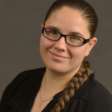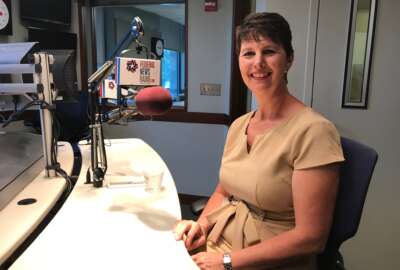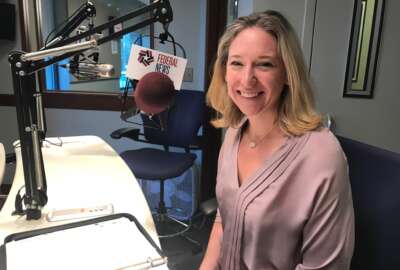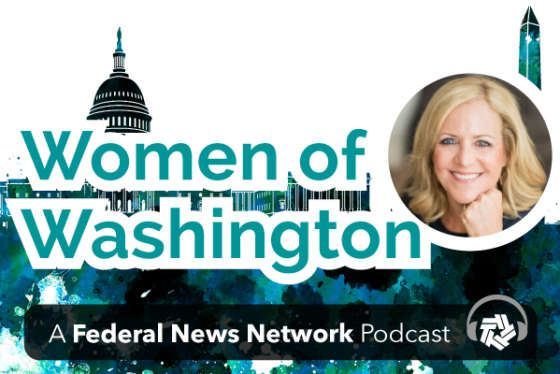
NGA paving the way for women in leadership
NGA is leading the way in terms of female leadership. Three executives joined Women of Washington to talk about what the agency is doing right.
Best listening experience is on Chrome, Firefox or Safari. Subscribe to Women of Washington’s audio interviews on Apple Podcasts or PodcastOne.
On this special episode of Women of Washington, Gigi Schumm welcomed three key executives from the National Geospatial-Intelligence Agency: Maj. Gen. Linda Urrutia-Varhall (UV), Jennifer Schnarre and Ellen Ardrey. Three women that found themselves taking very different paths that led them to the federal intelligence field. And in many ways, the offices they serve in could be seen as the different body parts of the agency.
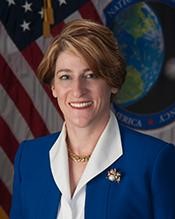
“I often describe my job as the heart of the agency,” Ardrey, associate director for support at NGA, said. “We do a lot of enabling support to the rest of the organization. Think HR training, education, security facilities, logistics, counterintelligence [and] insider threat.”
She said the support community within NGA is focused on the foundational capabilities that an organization needs. Urrutia-Varhall agreed with Ardrey that the support office is the heartbeat, but said then her office would be considered the action arm.
“If it has to do with getting support to our war fighters or customers, all funding falls under my purview,” Urrutia-Varhall, associate director for operations, said. “Whether it’s analysis where there’s foundational data, whether it’s getting ready to get our deployers out to support our war fighters… or getting ready for a crisis or supporting even hurricane relief, that also falls under me.”
The office of capabilities — Schnarre’s office — could then be considered the legs. Or the office focused on taking the next steps forward.
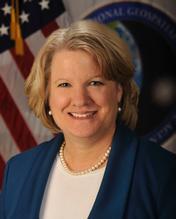
“We are also looking at the IT, the research, the new technology, new innovation [but also] looking at bringing things in like data and how as an agency we’re going to deal with that as well as the strategy to take us into the future,” Schnarre said, associate director for capabilities. “So we’re enabling the current and we’re also looking at new things that we need to move into the future.”
NGA Director Robert Cardillo will soon announce a fourth female to join the management staff as associate director for enterprise: Jennifer Daniel, Ardrey said. That will place the four functional arms of the agency under the leadership of women.
Not unexpected, as NGA was one of the first agencies to be run by a woman.
“I think we’ve been very fortunate to have strong [female] support and leadership,” Schnarre said. “Whether its through women joining the agency at a senior level or working their way up through the ranks, as I have.”
Career development
Schnarre has been in the intelligence field the longest, as she did work her way up. She began right out of college — after speaking to university recruits — as an analyst in the field. She studied international relations and Latin America and that helped her when she began working on intelligence projects surrounding Cuba.
But it wasn’t until after 9/11 that Schnarre and her team realized how important the intelligence field would become. She was the leader of the terrorism task force during that time.
“We had one relatively small element that worked terrorism prior to 9/11. So we were working it and it increased dramatically as you would guess,” she said. “So a very chaotic, very hectic time. And a very emotional time for those who had been working terrorism leading up to it and then after, with all of the changes that were going across the community and government.”
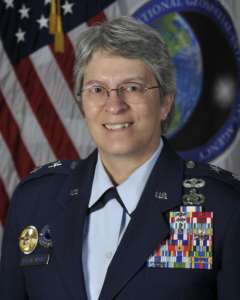
Urrutia-Varhall studied civil engineering while at the Air Force Academy. And while the intelligence field may not have necessarily been the first area on her mind when she was studying — she said she loved it once she entered.
It brings something different every day, Urrutia-Varhall said.
“I was an engineer. To me, it was building puzzle pieces, thinking methodically across the spectrum. And it was one that I really felt comfortable in,” she said. “I am challenged every day. It’s never boring.”
Compared to the other positions she’s held both in joint-command at the service level, she said joining the intelligence field helped her to get out of her comfort zone. She’s learned that every agency, every military service needs support in a different way.
And she also said during operations Desert Shield and Desert Storm, the services really had to learn how to work together in joint command. Being comfortable being a woman in the force from such an early age really helped her.
Ardrey — also once a member of the Air Force — started her federal career in the intelligence field. Before joining NGA, she worked with the Defense Intelligence Agency as their liaison. She said she fell in love with the mission and with the people at NGA.
“I was an officer in the military. I had done all-source intelligence at DIA and now this was an opportunity really to do a whole different discipline within the intelligence community [and] understand geospatial… and it was really a burgeoning discipline within the community,” she said. “It is an exciting to be part of that.”
She said when people see all of the different puzzle pieces that go into the intelligence community, they will develop an appreciation for what an amazingly complex and capable community it is.
Moving forward
NGA has embraced the importance of a diverse staff, it seems. Ardrey said it all starts with recruiting.
“We have a very, very successful recruitment initiative underway. Our primary source of new hires is from our student interns and so they have an opportunity to come in and have a paid internship over the summer,” she said. “They get to know us [and] we get to know them. Because of the deep relationships we have with a lot of these schools and our name recognition going up, we’ve had a lot of success in recruiting different kinds of talent then we’ve traditionally seen.”
Out of the hundreds of interns they see each summer, she said about 90 percent will eventually join ranks as full-time civilians upon graduation. So the directors have great confidence in how important the intelligence field is and where it is going.
Urrutia-Varhall said the agency does a great job of nurturing talent from all demographics.
“I think the seniors have really put their arms around [diversity] and said, ‘Hey, this is important.’ We do host women and at the beginning it used to be just a room full of women. Now the men are coming and joining in the conversation, because it has to be both ways,” Urrutia-Varhall said. “I think what we’ve done at the senior level is we understand we have to pay it forward. Just like [the women] did before us. We take mentoring very seriously.”
All three women agreed that it takes constant attention to maintain a diverse workforce. There needs to be opportunities for everyone, at all levels. But, Ardrey said, women are becoming more comfortable joining the workforce, at least in intelligence.
“As senior leaders in the organization, it’s incumbent upon us to create that environment where they feel comfortable stretching for a job and opportunity where they see others like themselves,” she said.
So what advice would they give a potential mentee?
“Live large. Because you don’t get to do it over again so often. When you see something that you think you might be interested in, you will never get a job you don’t apply for. Failure is okay, but reach for what you want. Sometime’s you’ll fall short and sometimes, guess what, you’ll actually grab that brass ring. Live large!” — Ardrey
“Follow your heart, do what makes you happy. Which I’ve been fortunate to do… but not without some second-guessing that certainly comes as you move along. Take every opportunity that comes in. Don’t second guess.” — Schnarre
“Especially in this day and age, think outside the box. Don’t be risk-adverse. If it doesn’t put anybody in danger, if it’s not a harm to anybody, take a little bit of risk. You’d be surprised where you could end up.” — Urrutia-Varhall
Copyright © 2025 Federal News Network. All rights reserved. This website is not intended for users located within the European Economic Area.
Steff Thomas is a digital editor at Federal News Network.

